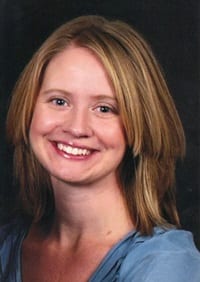 Dominique J. Baker, assistant professor of education policy, has been awarded an American Educational Research Association (AERA) research grant and a Spencer Foundation small research grant.
Dominique J. Baker, assistant professor of education policy, has been awarded an American Educational Research Association (AERA) research grant and a Spencer Foundation small research grant.
The AERA research grant will provide $25,000 to examine the effect of a Texas state policy designed to increase college completion and limit college student debt by incentivizing students to take fewer classes unrelated to their degree (excess semester credit hour policies).
In Texas, public institutions may charge in-state students up to the full out-of-state price once students gain credits above a certain level.
This policy is designed to discourage students from taking classes not needed for graduation while encouraging colleges to create more streamlined pathways to a degree. Prior research suggests that these types of policies may encourage students to simply borrow more instead of focusing on graduating more quickly. These types of policies may also affect transfer students if their transfer credits do not count toward their degree program, but do count toward the overall number of cumulative credits they are allowed to pursue.
The Spencer small research grant will provide $50,000 for Baker to investigate whether Texas community college districts show evidence of racial gerrymandering. Some scholars have found evidence of racial gerrymandering in K-12 attendance school zones across the United States. However, little research has focused on how district boundaries are created for community colleges. This project will use several different geospatial techniques to produce evidence on whether racial gerrymandering exists, and whether boundaries alleviate or worsen segregation in community colleges.
While both research projects focus on Texas as case studies, these policies exist in several other states. Baker aims to provide scholars, policymakers, and the public with evidence on the extent to which inequities are embedded within state higher education policies on course-taking behaviors, and in the creation of community college districts.
She will begin work on both studies in 2020.
 Assistant Professor Denisa Gándara, Dept. of Education Policy and Leadership, looks at performance-based funding (PBF) policies, intended to improve college completion by linking state funding for public colleges and universities to performance measures, and sees if this causes institutions to restrict student access.
Assistant Professor Denisa Gándara, Dept. of Education Policy and Leadership, looks at performance-based funding (PBF) policies, intended to improve college completion by linking state funding for public colleges and universities to performance measures, and sees if this causes institutions to restrict student access.








